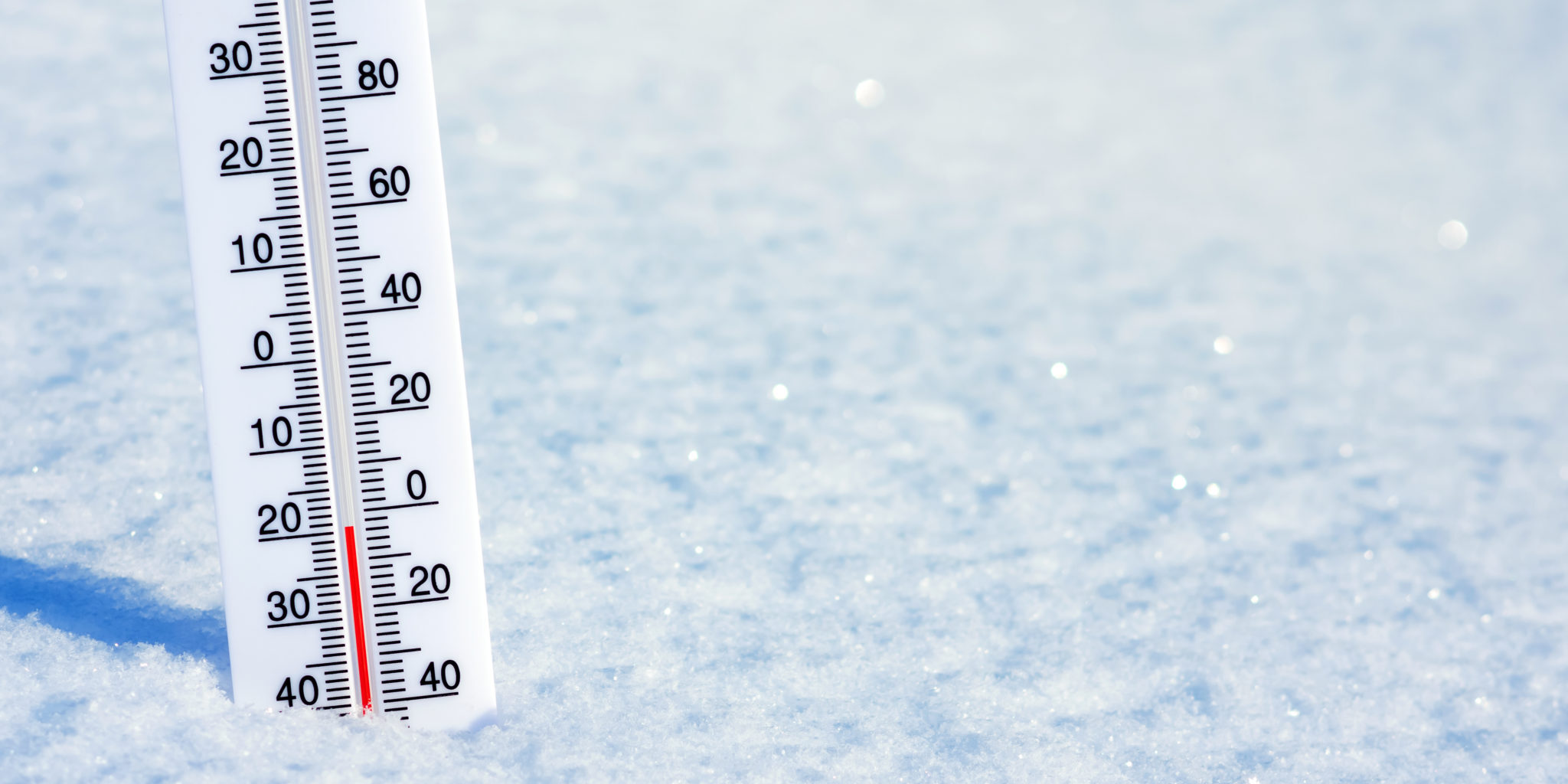
Winter Energy Price Spike Toolkit
A communications and social media toolkit for Massachusetts municipalities.
Energy prices in Massachusetts typically increase in the winter due to the combination of regional gas supply constraints and most of our electricity generation and heating for homes and businesses relying on gas.
Winter 2024-25 is no different. While rates have not gone up as much this winter as they did in 2022-23, overall energy price increases continue to impact affordability for millions of residents across the Commonwealth already burdened by the high inflation of the past few years. Assistance programs for heating bills and discounts on electricity and gas bills are available for many residents but hundreds of thousands of residents are expected to not be enrolled.
Resources to Help You Inform Your Residents. This toolkit aims to support your communication with your community about the assistance resources available to them for heating, electric, and gas bills.
Get in Touch
If you have any questions, please contact the MAPC Clean Energy Department at [email protected].
Press Contacts:
Amanda Linehan
Communications Director
617-388-1556
[email protected]
Tim Viall
Senior Communications Specialist
[email protected]
How to Use this Toolkit
This toolkit includes information from utilities, state agencies, and others, as well as template social media content you can tailor for your use in communicating with your residents.
Toolkit Objective
This guide provides easy-to-use communications resources to inform consumers, residents, and small businesses about the increase in energy costs and near-term solutions. This guide includes:
- Resources for residents in your community
- Social media language and images
- Utility assistance fliers in 8 languages (English, Arabic, Cape Verdean Creole, Haitian Creole, Khmer, Portuguese, Spanish, and Vietnamese)
- Links to additional resources
Did You Know?
The Massachusetts Department of Energy Resources (DOER) estimates that residential customers will see the following cost increases:
Natural Gas- 24% increase
Heating Oil- 11% decrease
Propane- 1% increase
Electricity- 6% increase

Resources for Residents in Your Community
Note: residents are protected from utility shut offs if they or someone in their household is seriously ill, have an infant under 12 months, or all adults are 65+ years old plus have a minor living with them (the utility must get approval from DPU in this case). Everyone is protected from electricity and gas shut-offs during the coldest months between November 15th and March 15th. However, during this time a utility customer will continue to accrue debt if bills are unpaid and may be at risk of shut-off when the winter moratorium ends in March.
Social Media
Hashtags You Can Use
#EnergyCosts #UtilityAssistance #EnergyBills #EnergyEfficiency #SaveOnEnergyCosts #ReduceEnergyCosts
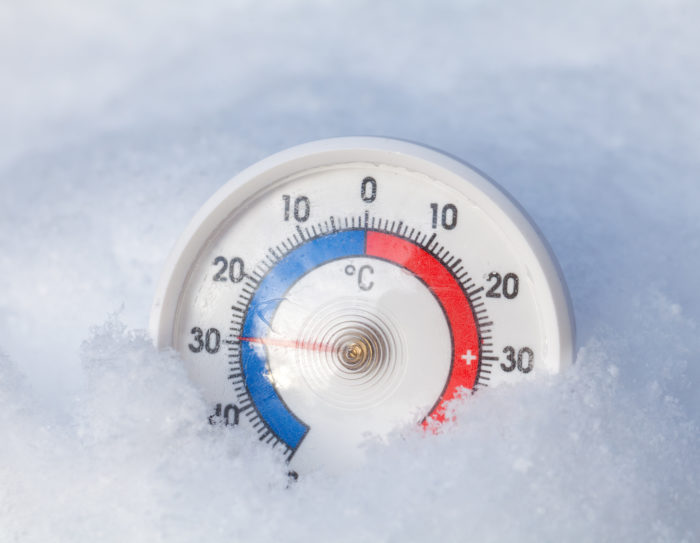
A Few Best Practices
- Know Your Audience: Who are you posting this information to? Residents? Create your social posts with that audience in mind.
- Know the Platform: The social media platform you are using to post on should inform how and what you're posting. For example, posting on Twitter is for more immediate, word-limited posts. LinkedIn is for professional audiences, and there isn't a word limit. Facebook is for more causal postings. You can use the same post across platforms but we recommend changing it up a bit based on the platform!
- Accessibility: Ensure your social posts are accessible to all by making sure to use alt text, and if you use hashtags, capitalize every first letter of each word in the hashtag. Learn about ways to make your social postings accessible.
- Interactive: Amplify other sources on social media, such as official sources, agencies, and experts, by sharing or retweeting their posts.
- Tag Us! Be sure to tag MAPC in your social posts to reach a larger audience. Please feel free to also retweet any posts we do as well.
Social Media - Graphics
Right-click on the images below and choose "save image as" to save to your computer. Then, compose your own social media post or use some of the sample language further below. The social graphics should work well on Twitter, Facebook, Instagram, and LinkedIn.
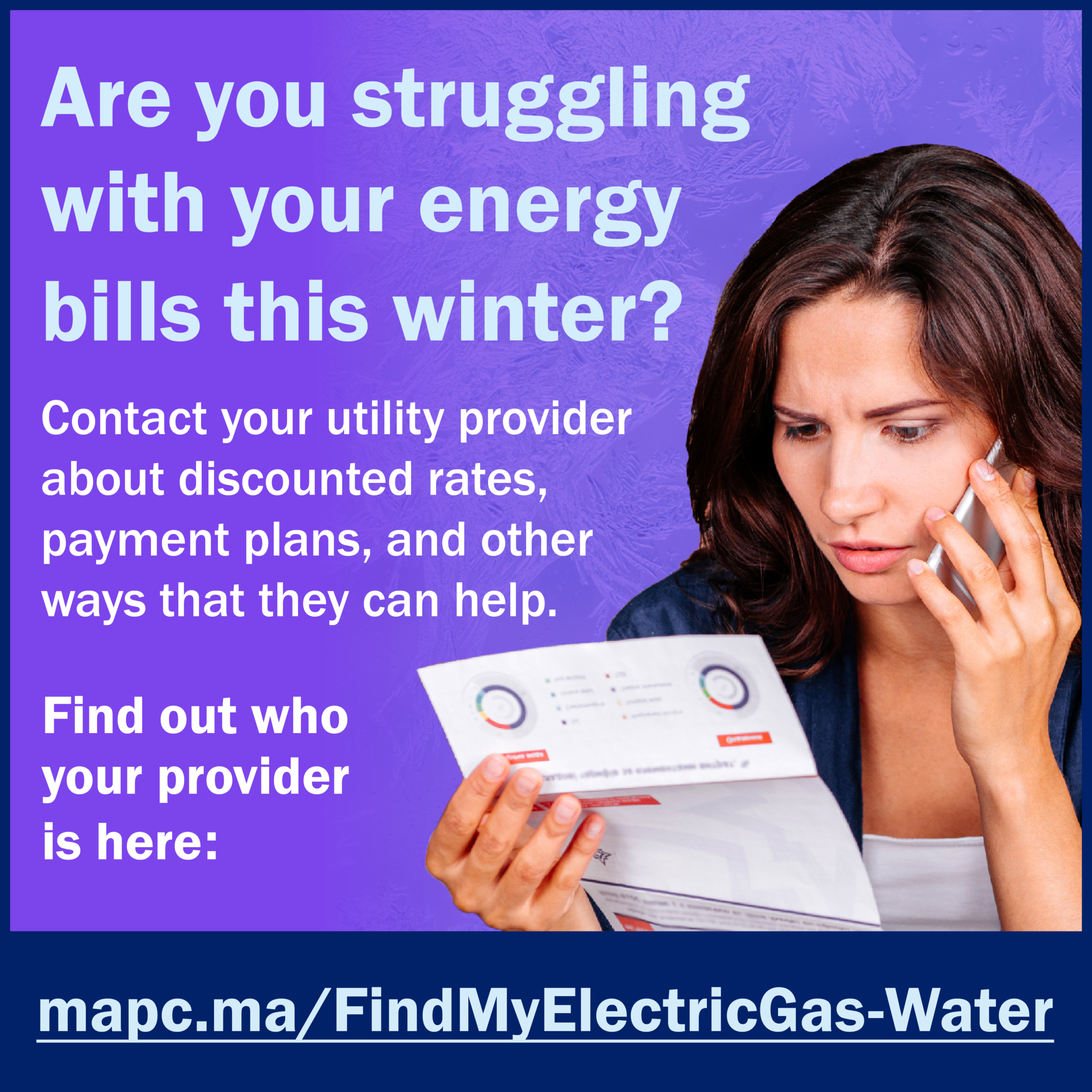
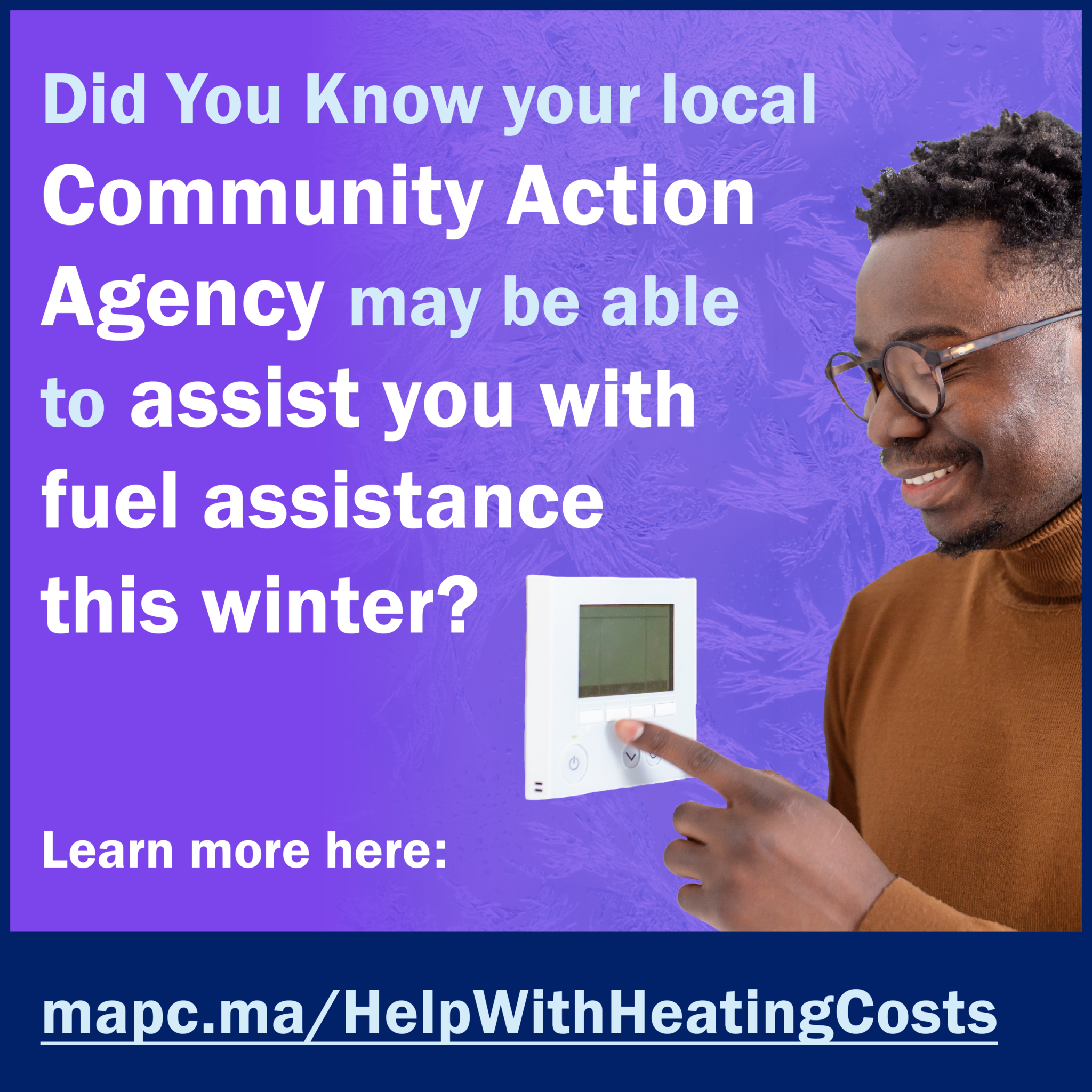

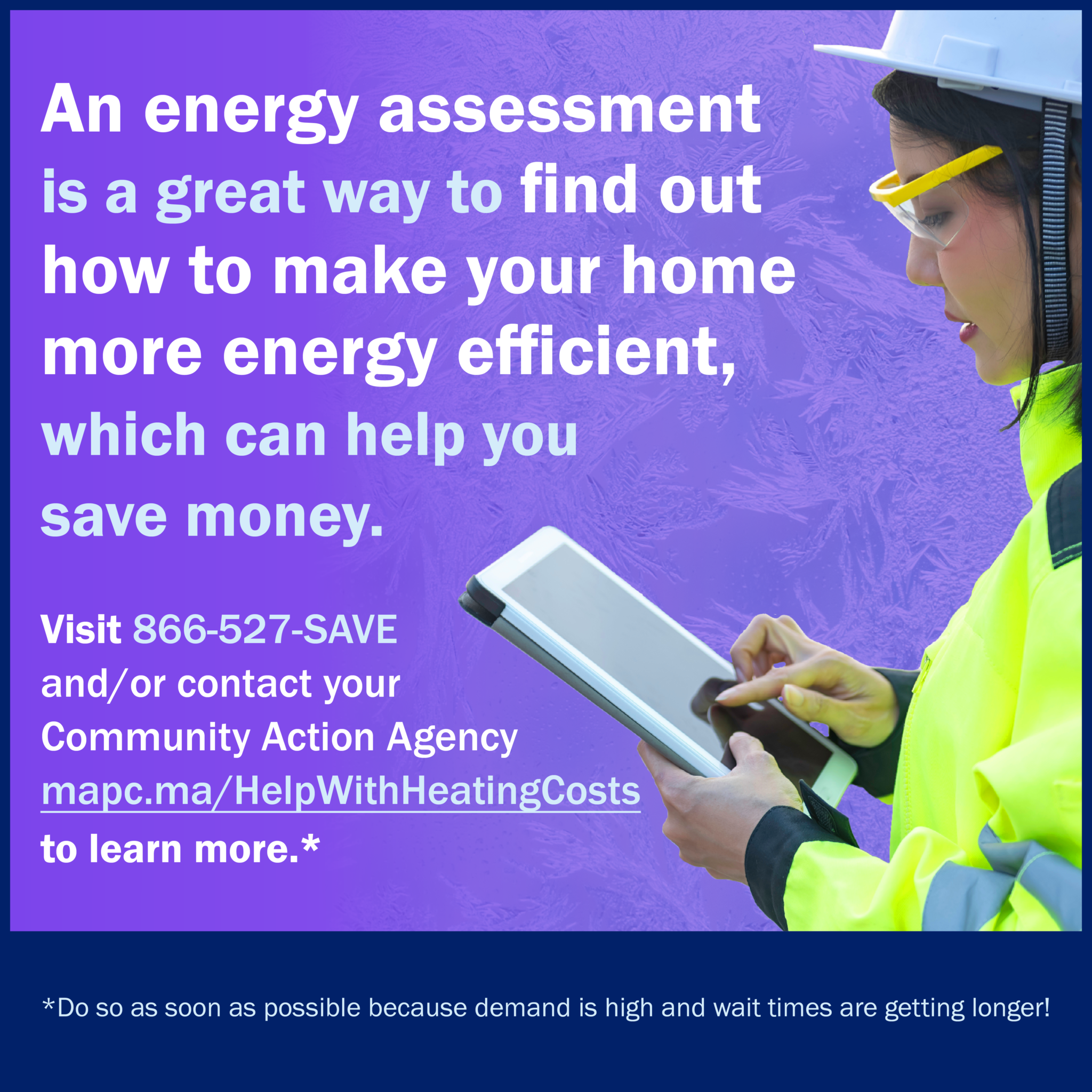
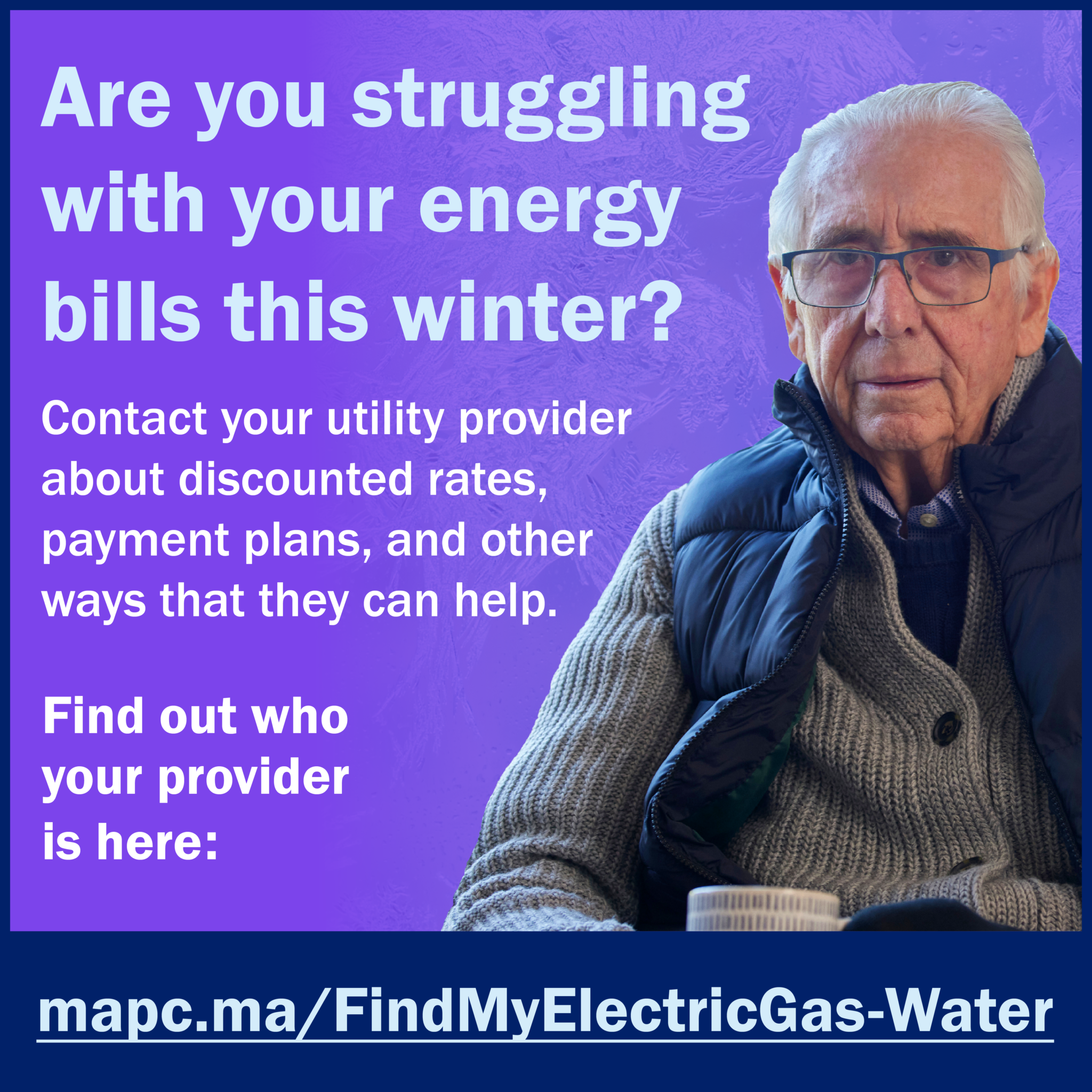
Social Media - Sample Social Posts
You are welcome to copy, paste, and add to or change the sample social posts below. You can use them in conjunction with the social graphics above, or by themselves.
Are you struggling with your energy bills this winter? Contact your utility provider about discounted rates, payment plans, and other ways that they can help. Find out who your provider is here: mapc.ma/FindMyElectricGas-Water.
Did You Know that your local Community Action Agency may be able to assist you with fuel assistance this winter? Learn more here: mapc.ma/HelpWithHeatingCosts
An energy assessment is a great way to find out how to make your home more energy efficient, which can help you save money. Call Mass Save (866-527-7283) and/or contact your Community Action Agency (mapc.ma/HelpWithHeatingCosts) to learn more. Do so as soon as possible because demand is high and wait times are getting longer!
If you're a renter and your utility bills are too high, talk to your landlord about Mass Save or visit their website to learn about ways to save: mapc.ma/EnergySavingsforRenters.
Utility Assistance Fliers in Eight languages
MAPC developed utility bill assistance fliers in 2021. The downloadable fliers are in power point and easily editable so that you can customize for your locality. Many of the links and resources are still relevant today. To download the existing fliers Utility Bill Assistance: Massachusetts Resources – MAPC.
Additional Resources
MA Department of Energy Resources (DOER)
“Massachusetts Household Heating Costs: Estimate of energy prices for heating fuels for the 2024/25 Winter Heating Season”
This website provides a comprehensive report of rising energy prices, how it will impact residential consumers, and information on financial support for heating assistance.
Massachusetts Household Heating Costs | Mass.gov
MA Department of Housing and Community Development
“Cold Relief Brochure”
This brochure (2024-2025) has relevant information on energy assistance programs and energy saving tips.
Cold Relief Brochure 2024
Metropolitan Area Planning Council (MAPC)
Blog Post on “Reducing Energy Burden: Resources for Low-Income Residents”.
This blog post from January 2022 covers information on what energy burden is, statistics for Massachusetts, and resources for low-moderate income residents.
Reducing Energy Burden: Resources for Low-Income Residents – MAPC
If you have other resources, you’d like to share that aren’t listed in this toolkit please send to [email protected]
